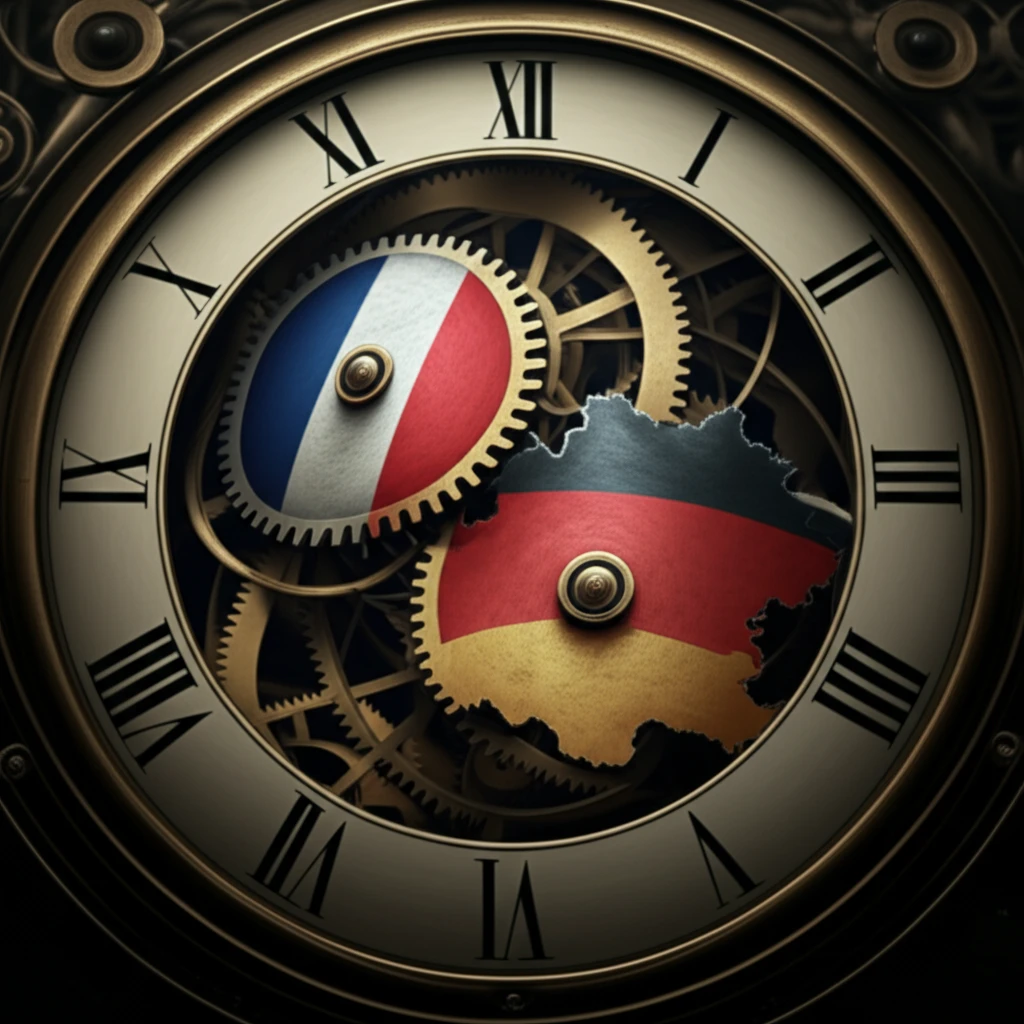
Eurozone Rescue: How Franco-German Cooperation Shapes Economic Policy
"Decoding the dynamics of Franco-German collaboration during the Eurozone crisis, its impact on economic reforms, and what it means for the future of the EU."
The Eurozone crisis, a period of intense economic turmoil, underscored the critical role of collaborative efforts among European nations. Among these, the partnership between France and Germany emerged as a focal point of influence and debate. While political observers and journalists often highlight the significance of this alliance in navigating the crisis, academic experts remain divided on the true extent and impact of their cooperation.
This article delves into the collaborative relationship between France and Germany, specifically examining how it shaped the Economic and Monetary Union (EMU) reforms negotiated between 2010 and 2015. We aim to dissect the mechanisms through which this cooperation influenced the outcomes of EMU negotiations, providing insights into the dynamics of European economic policy-making during a critical period.
By analyzing the strategic interactions and policy outcomes, this study seeks to clarify the role of the Franco-German partnership. We will explore whether their collaboration acted as a catalyst for progress, a hindrance to broader consensus, or a combination of both. Ultimately, this analysis provides a more nuanced understanding of the forces that shaped the Eurozone's response to its most significant economic challenge.
Franco-German Cooperation: A Deep Dive into Key Mechanisms

To understand how Franco-German cooperation affected EMU negotiations, we need to examine three critical mechanisms. First, their collaboration could lead to the elimination of issues from the negotiation agenda. By presenting a united front, they could effectively reduce the options available to other member states. Second, they might facilitate the identification of compromise solutions or the provision of compensations, acting as brokers to bridge divides among other nations. Third, they could leverage their combined power to impose joint agreements on other member states, acting as a dominant force in shaping policy outcomes.
- Eliminating Issues: France and Germany jointly opposing a policy to narrow the choices for other member states.
- Compromise Solutions: France and Germany forming an inner negotiation circle to develop compromises.
- Power-Based Imposition: France and Germany constituting a directoire that imposes solutions on member states.
Final Thoughts: The Enduring Legacy of Franco-German Cooperation
The Franco-German cooperation during the Eurozone crisis reveals a complex interplay of influence and compromise. While they wielded the power to eliminate options and broker solutions, they did not act as an unrestrained force imposing their will on other nations. The crisis underscored the importance of their partnership in navigating economic challenges, but also highlighted the limitations of their dominance in a diverse and evolving European landscape. The legacy of their cooperation continues to shape the dynamics of EU policy-making, reminding us of the delicate balance between leadership, consensus, and national interests in the ongoing pursuit of European integration.
